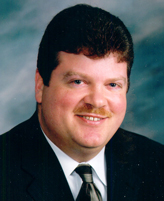Heckerling Day 5 (Final Day)
 Today’s blog post about the Heckerling Institute is written by Withum’s Private Client Services Partner and Practice Co-Leader, Ted Nappi.
Today’s blog post about the Heckerling Institute is written by Withum’s Private Client Services Partner and Practice Co-Leader, Ted Nappi.
Well, we have reached the final day of a very informative week at the 50th Annual Heckerling Institute on Estate Planning in Orlando, FL.
It was a short day, but filled with great speakers such as Natalie Choate, Todd Angkatavanich, Martin Shenkman and the famous Jonathan Blattmachr.
Natalie Choate presented on “Estate Planning for Retirement Benefits: A Step-by-Step, How-to-Do-It Manual for Practitioners.” Her presentation was a practical guide to estate planning for those troublesome assets called retirement benefits. She explains how to deal with retirement benefits as part of a client’s estate plan: whom to choose as beneficiary of the plan; how best to leave the retirement benefits to the chosen beneficiary if he/she is a minor, a spouse, a “second spouse,” a disabled beneficiary, a charity, or “other”—or some combination of the foregoing. She discussed how retirement benefits fit in (or don’t fit in) with federal transfer tax planning; and the special rules you need to know when planning for retirement benefits.
The second session covered by Todd Angkatavanich was titled, “Soup to Nuts: A Practitioner’s Guide Through the Minefield.” Todd’s presentation provided a discussion of the many estate and gift tax pitfalls that practitioners need to keep in mind whenever structuring transactions between family members. He discussed a broad overview of the statutory provisions of sections 2701 through 2704. Additionally, he presented proactive planning tips to help practitioners navigate the Chapter 14 minefield.
There are a number of gift and estate tax issues that may arise under Internal Revenue Code (the “Code”) Chapter 14 in connection with transfers of business interests or transfers in trust when family members are involved. Contained within Chapter 14, generally there are numerous gift and estate tax provisions that are designed to discourage certain types of transactions or arrangements entered into between members of the same extended family. The violation of one or more of these provisions can cause an unanticipated deemed gift or increase in the value of one’s estate, which can potentially result in substantial gift or estate tax. Many of these sections of the Code are written very broadly and are not intuitive and can unexpectedly apply even when a transaction has not been structured with the intention of achieving estate or gift tax savings, or in circumstances where wealth transfer may not even be the objective.
Finally Marty Shenkman and Jonathon Blattmachr closed the conference with their presentation on “Practical Planning Strategies for the Future.” Their presentation reviewed several of the key planning strategies covered during the week, and explained why and how some of them will remain viable strategies for the future. They offered practical suggestions for how practitioners can prepare and grow despite the uncertainty the future presents. They discussed how estate planning will become increasingly dependent upon investment strategies and results, and explained why planning will be more predictable with greater investment certainty.


